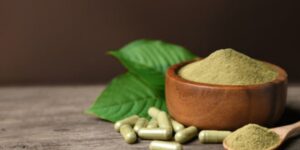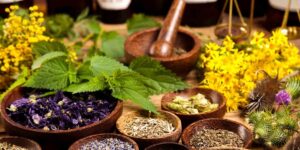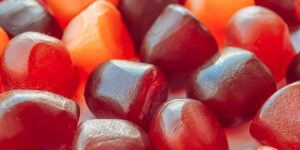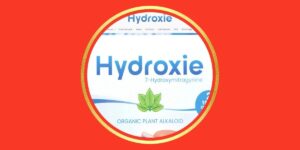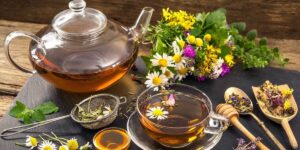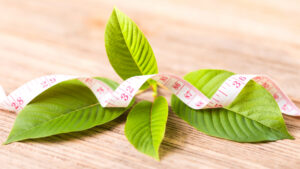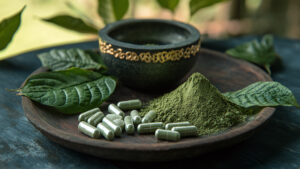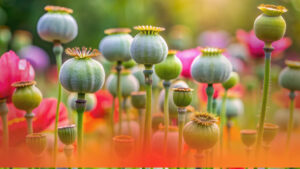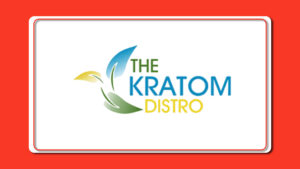Among wine consumers, the beverage transcends its basic role since it functions as both a spiritual practice for relief and an enhancement to all kinds of food and social occasions.
Alcohol remains off-limits for various individuals who abstain from drinking because of personal preferences, together with health concerns or lifestyle restrictions.
The emergence of alcohol-free wine alternatives now provides stylish choices to people who want wine flavor without alcoholic content.
A wide selection of alcohol-free wines and unique herbal teas as well as innovative mocktails, exists to serve various tastes.
In this blog, we’ll explore non-alcoholic wine alternatives and how different non-alcoholic wine options enhance drinking experiences with their special properties.
Why Choose Non-Alcoholic Wine Alternatives?
The intense demand for alcohol-free drinks during recent years stems from three main factors, including health-oriented lifestyles along with casual alcohol consumption choices, and welcoming routines that exclude alcohol.
Those who want a wine experience can now access the aromas, flavors, and ceremonial elements, and prevent alcohol consumption.
These substitutes serve as an equally gratifying beverage choice since they also bring health benefits to those who choose to abstain from alcohol, whether temporarily or at an ongoing level.
Non-alcoholic wine alternatives provide users the flexibility to enjoy them in various ways. Spray wines provide multiple usage options since they work both independently and as mixers for both meals and mocktail creations.
Users can find multiple options with natural ingredients that become excellent matches for people seeking plant-based and clean drink choices.
Top Non-Alcoholic Wine Alternatives
Here are some of the best non-alcoholic wine alternatives to consider:
1. Cranberry Juice

Cranberry juice functions well as a replacement for red wine because it shares red color, bold taste elements, and acidic properties. This acidic beverage enhances all kinds of food preparations.
One-to-one substitution of red wine with cranberry juice can occur in most recipes.
Cranberry juice has natural sweetness, so it is advised to use unsweetened versions as a culinary ingredient. When added without caution, the recipe develops an unintended extra sweetness.
When preparing recipes with cranberry juice, users should dilute the sweetness by blending one to two tablespoons of vinegar into the juice before use.
The consumption of cranberry juice provides certain health benefits to the human body. Scientists have found urinary tract infection-preventing properties in cranberry juice, along with antioxidant content that stops inflammation from causing diseases.
2. Red or White Grape Juice
Grape juice offers a rich, drinkable experience that perfectly substitutes for wine when alcohol needs to be avoided.
The same recipe results appear when you exchange wine with grape juice at a one-to-one ratio because wine shares virtually identical flavor and color characteristics with grape juice.
The proper substitute for white wine uses white grape juice, while red grape juice serves as a replacement for red wine.
If you want less sweetness in your grape juice, simply include a tiny amount of vinegar since this addition enlarges acidity levels while strengthening the tartness sensation.
The mixture of grape juice with vinegar produces an excellent marinade that works well with either meat or vegetables.
Grape juice provides cooking value while delivering multiple polyphenol antioxidants in food.
Scientists evaluate polyphenol antioxidants in grape juice because researchers believe they have the potential to strengthen immunity while also helping decrease the risk factors that cause cardiovascular disease, including hypertension.
3. Ginger Ale
Ginger ale obtains its taste from ginger while using carbonated water as its base. The beverage includes a mixture of ginger, and it also has lemon lime and cane sugar added to it.
The appearance similarity between ginger ale makes it possible to substitute it for white wine in food preparation. When replacing white wine with ginger ale, it is acceptable to use volume-based substitution at a 1:1 ratio.
The tartness of ginger ale acts as an excellent meat tenderizing agent that dissolves protein structures in meat to create tender bites.
Be aware that ginger ale will bring a different flavor to the dish compared to white wine. The dry and sweet characteristics of ginger ale match white wine yet it must be reserved for those dishes that accept a light ginger taste profile.
4. Pomegranate Juice

The rich, fruity flavor characterizes pomegranate juice as a drink.
Pomegranate juice maintains an acidic character as it can elevate the taste of numerous food items. The flavor profile, along with the aroma and acidity, which match red wine, makes pomegranate juice suitable for equal cooking applications with red wine.
The weaker acidity of pomegranate juice allows you to enhance its flavor through the addition of a tablespoon of vinegar.
Pomegranate juice serves the taste palette as a suitable addition to numerous meal types. The application of this juice works effectively either in dressing salads or sauces, or glazing vegetables.
The consumption of pomegranate juice through recipes will both enhance food taste and deliver health benefits.
Tests have shown that pomegranate juice contains antioxidants together with blood pressure-lowering potential, which helps protect against heart disease risk factors.
5. Red and White Wine Vinegar
Acetic acid, together with water and the natural components of wine, form the primary substances making up vinegar when wine serves as the base for fermentation.
The production of vinegar occurs through the fermentation of apple cider, along with coconut water and both malt and rice.
Cooking recipes use wine vinegar as a suitable replacement for wine with red or white vinegar. Both the red wine and white wine types of vinegar contain comparable wine-like tastes, which do not alter a dish’s overall flavor profile.
Most recipes that require liquids benefit from the addition of wine vinegar, particularly in dressings and marinade preparations.
Beef and vegetable dishes require red wine vinegar as their ideal ingredient, but white wine vinegar functions perfectly in milder dishes that contain chicken or fish.
When adding wine vinegar to a recipe, it needs to be diluted since its acidity surpasses ordinary wine; thus, mixing equal amounts of water and wine vinegar before adding it to recipes will help achieve the proper result.
6. Apple Juice
The same characteristics of sweetness and pale color in apple juice make it a versatile ingredient in various culinary preparations.
The sweet flavor, with pale color and non-alcoholic nature of apple juice, makes an ideal substitute. The substitution of white wine with apple juice for cooking happens on a one-to-one basis.
The proper use of apple juice as a white wine alternative depends on the recipe’s wine quantity because it works better when the wine content is small.
Making the substitution with apple juice instead of the intended wine could yield different results since the flavor will vary.
When working with apple juice, similar to other juice variations you can enhance both flavor and acidity by introducing vinegar. Light dishes can benefit from a sauce preparation that uses apple juice because it provides an excellent addition.
7. Kombucha

The acquired taste of kombucha produces sharp yet fizzy drinking qualities that substitute traditional alcoholic beverages during evening celebrations.
People praise kombucha as a fermented tea beverage containing probiotics and B vitamins, which provides health potential advantages.
Since each bottle contains about 30 to 90 calories, the beverage provides a moderate-calorie treat while remaining low in total calories.
Cautions should include professional consultation from a healthcare provider because kombucha contains alcohol produced through fermentation, even though the amounts are very low.
8. Kratom Tea
Kratom tea serves as an option to investigate when you need something beyond drinks and want both relaxation and the mellowness that wine provides.
The leaves of Southeast Asian trees produce Kratom for making tea, which people sometimes use for stress relief and relaxation purposes.
The regulation of kratom varies per state; thus, before making a kratom tea purchase, always seek vendors who properly test their products for safety.
Make sure your vendor has clear product ingredient listings and performs extensive lab examinations as signs of safety when selecting a safe vendor.
The concern dissipates after purchase because enjoyment remains intact.
The recipe of non-alcoholic sangria is worth attempting when you have additional moments to spare. The mixture creates an enjoyable beverage solution that can enhance any social event by substituting wine with another non-alcoholic base.
9. Non-Alcoholic Wine and Cocktails
The market provides plenty of options for wine tasting without alcohol content. The markets for non-alcoholic wine, together with bottled mocktails, have seen impressive development.
The non-alcoholic beverages provide complex tasting experiences while delivering enjoyable sensations without intoxication.
These drinks provide the complete wine experience without any alcohol present, so they meet the requirements of sophisticated drinkers who choose not to consume alcohol.
The market provides pre-made versions of alcohol-free wines, which ease preparation while also supplying creative homemade recipe options.
10. Coconut Water
Drinking coconut water provides hydration similar to sports beverages, combined with a gentle natural sweetness that delivers refreshing refreshment.
Drinking coconut water offers hydration benefits, together with a sugar-free refreshment that contains no fake ingredients.
To give coconut water a fresh taste infusion pour in some pineapple juice or lime juice. Drinking coconut water combined with pineapple juice, along with a cherry addition, will create a tropical mocktail experience.
Avoid Combining Alcohol with Certain Non-Alcoholic Wine Alternatives
The process of switching to non-alcoholic wine alternatives becomes possible by swapping only one or two wine glasses each night, rather than removing all glasses at once.
You begin your evening with wine as you typically would, yet transition to a non-alcoholic wine substitute for the following glass.
Research and caution must remain your main focus when adopting this strategy for change. Not all non-alcoholic wine options, including kratom or kava, should be mixed with wine since they are incompatible.
Most people should handle small, separate doses of the substances spaced over several hours without difficulty, yet one must remain aware of potential drug interaction effects nonetheless.
Tips to Easily Switch to a Non-Alcoholic Wine Alternative
Before we give you the list of our 8 favorite non-alcoholic wine alternatives, we want to share some tips that will help you make the transition from booze to NA brews easier.
1. Pour Your Drink Into a Wine Glass
Your selected non-alcoholic wine goes into your preferred long-stemmed wine glass. Using a long-stemmed wine glass alongside your drink can elevate its appearance so it appears more refined. The combination of relaxation and effectiveness will create a beneficial bedtime routine that you will enjoy.
2. Prep Your Alternatives in Advance
You could easily become annoyed by a longer preparation time when you use an alternative to regular wine, which used to open instantly at night.
Prepare your herbal tea brew and mocktail blends ahead of time by storing them in the fridge so you can easily serve them during evening moments.
Preparing large amounts allows you to divide the liquid into individual serving jars, which maintain their quality for several days.
3. Stay Hydrated Throughout the Day
A thirst sensation could be mistaken for an alcoholic desire. Drink water continuously to maintain proper hydration. As night approaches, your taste tends towards non-alcoholic beverages, which you find more appealing.
4. Combine Your Wine Alternative with a Soothing Activity
It becomes challenging to switch beverages when someone normally drinks wine during periods of stress.
Wine drinkers can overcome their nightly routine through a combination of their new non-alcoholic beverage and activities that bring relaxation, such as reading or stretching or listening.
A new relaxation routine that combines stress reduction with wine substitute consumption becomes available through this method.
Creating the space to commit to certain activities may be demanding regarding both time and patience, although these activities provide enduring advantages past your drinking time.
Final Thoughts
A wide range of non-alcoholic wine alternatives exists in the market that match every taste preference and celebrate the occasion. Each beverage lover will find a suitable option among alcohol-free wines, traditional herbal teas, and tangy kombucha beverages.
You can keep the wine experience and its elegant traditions while remaining sober through non-alcoholic beverages, which let you join in any drinking occasion.
They constitute a collection of top beverage alternatives for your consideration because you could discover your new preferred drink among these choices.
More Readings:









